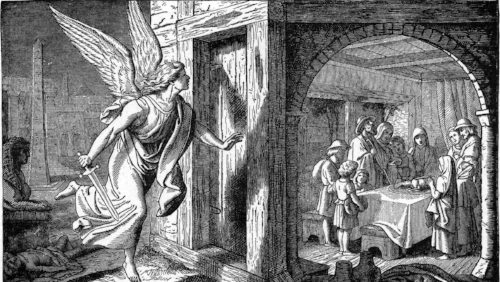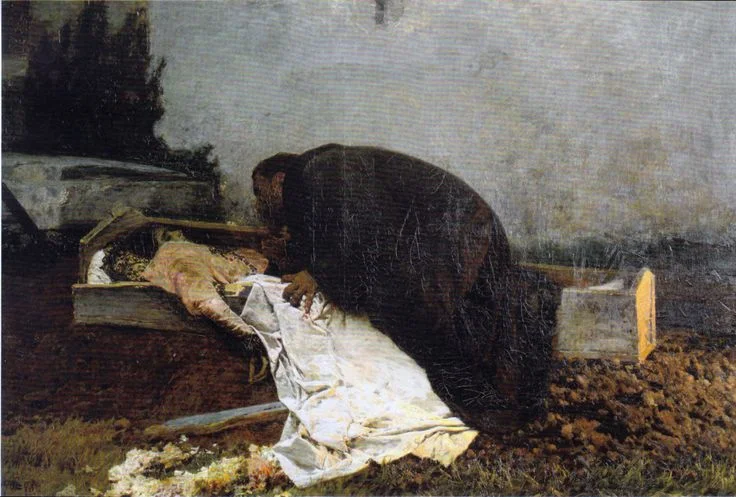Learning to read Bible references is like learning to walk, talk, or wipe one’s own arse: you cognitively understand that someone helped you acquire proficiency at these skills, but often have no memory of the event.
The Bible's Odd Silence On Necrophillia
Refugees: a Bible Issue (take 2) & False Narratives that Lead to Biblical Truth
Refugees: "not a Bible issue"? OR Why Franklin Graham can go [expletives deleted]...
Avoiding Biblical Offense: An Open Letter to Christians who play CAH, but have a problem with AGFGC
"...you can laugh at “The Virginia Tech Massacre,” but “Babies with their brains dashed against stones” (Psalm 137) is problematic?..."
If We Read One More Ignorant Thing About The Bible . . . [A Rant]
Note: This is a revision of something We posted on our old blog over two years ago. We felt it was time to dust it off. Strap in.
Notice the above graphic/website and its title. Click. Surf around. Spend some time on it and then come back.
Ready?
Let us first say, we love this on many levels. It’s smart, it’s creative, it’s colorful, it’s providing a good service. We just wish it wasn’t so wrong. So damned-by-God wrong. All over the place. Wrong.
Beyond understandable ignorance, things that most people don’t learn and have no reason to learn outside of a serious Bible study, seminary, or a level of theological/biblical neridty boarding on psychosis (welcome to our world), there are other things that are just dumb: things a thinking person would question as being odd in the presentation.
But to be clear we are talking to and about Christians reading this, as much, if not more so than the creators of the site. We fear most Bible reading Christians make the EXACT SAME mistakes when interacting with the Bible that the creators of all this interactive awesomeness. In some ways we respect the Skeptics more than the Christians as a result. They have an excuse.
Below we outline a handful of these mistakes made by both groups— Bible skeptics and Christians we want to kick— in the hopes that someone, somewhere, will stop making them. These are arranged by category but in no real order.
Chronology matters
- We shouldn’t even have to say this. The books in the Bible weren’t all written at the same time, by the same human hand, regardless of what you think about Divine Inspiration. The order you read things in makes a difference. (Example: stop complaining about how people in Genesis broke the 10 Commandments when the 10 Commandments didn’t exist yet.)
Words have meaning
(“You keep using that word. I do not think it means what you think it means”)
- Just because an English word is used in the Bible doesn’t mean that the Hebrew (or Aramaic) in the Hebrew Bible, or the Greek in the New Testament mean the same thing at all. At all. AT ALL.
- Just because you read a word in English doesn’t mean it’s the same word in Hebrew/Greek every time it appears in that verse. Apply this to different chapters, books, sections, Testaments. [Repeat.] (Example: In Exodus, when talking about the “hardening” of Pharaoh’s heart, three (3) different Hebrew words are used for “hardened” throughout the narrative. The specific words, their order, and the surrounding context matters.)
Reading comprehension
- Just because it is in the Bible doesn’t mean that the Bible condones the action/idea. Saying something happened is not the same as saying people should do it. (Example: the Bible mentions suicide by hanging, sacrificing children to foreign gods, and pulling out of one’s sister-in-law during sex.)
- Just because an idea/action/situation/entity appears (in translation) in the Bible, does not mean that what is true in the 21st century was exactly how that things operated in the iron age of the Ancient Near East. (Example: “slavery” in Israel was nowhere even remotely the same as African slavery in the antebellum American South. Not one damn bit)
- Just because you are able to read one verse doesn’t mean much. Read the verse in context. Context includes the surrounding verses, the chapter, the section of the book, the whole book, the section of the Bible/type of literature. (Example: A psalm is not the same as a geneology; The Deuteronomistic History is not the same as the Gospels; The P-source is different than a pseudo-Pauline text. If you said, “what?” to any of those you’ve proved our point.)
Inner-Biblical Interpretation
- (This one sends us to Hell) Just because it says something in the New Testament, that doesn’t mean that the writers of the Hebrew Bible would have agreed with it. [What?] The New Testament contains specific commentary of the fledgling “Jesus movement,” who were either Jews trying to figure out their relationship with Judaism (“Are we a new sect or a new religion?”), or gentiles who were switching from some other religion. The writers of the NT are interpreting the Hebrew Bible: the writers of the Hebrew Bible wouldn’t agree with everything the NT writers said, and the NT writers don’t always agree with each other on specific passages (Example: Paul in Romans 4 and James in James 2 on Abraham’s binding of Isaac). Furthermore, you could disagree with the interpretation of a NT writer (Example: contra Hebrews 12, Esau wasn’t “immoral and godless,” he just made a stupid decision).
Some General Rules of Thumb
- Stop accepting what you learned in Sunday School as truth, especially if you haven’t actually read the passage you’re talking about in years, or ever.
- Stop thinking Moses, Jesus, and Paul spoke your version of idiomatic English.
- Stop trying to harmonize the Hebrew Bible with the New Testament on all issues: They are two collections of books, not two single texts to Venn Diagram.
- Stop trying to harmonize the Gospels: they don’t all say the same thing, and that’s on purpose.
- Stop trying to make the Bible a scientific textbook.
- Stop trying to make the Bible into your social justice textbook.
- Stop trying to make the Bible into your personal therapist.
- Stop trying to make the Bible into anything other than the Bible.
- Stop imposing your monochromatic picture of God on reality and then getting pissed off when the Bible disagrees with that overexposed nonsense. You did that. Not the Bible. Not God.
Again, there are examples on this site that do not have a simple, Google/Wikipedia/think-damnit answer, which scholars and people of faith have wrestled with for centuries. But honestly, the vast majority of the things on this page are not that difficult to deal with when the things above are considered.
Which brings us to our real point:
If as much time was spent researching the answers to these “contradictions” as was spent putting this awesome visual together, while we doubt anyone would be converted, the level of cynicism would ratchet down a notch, and a begrudging respect for the Bible might emerge.
But what do we know: we made this game, which you probably think is worse than the Skeptic’s website, thus we’re all going to Hell.
Ezekiel: Dysfunction You Can Trust (?)
We have multiple cards based in the book of Ezekiel, including "Bread Freshly Baked with Human Dung (4:12)," "Turning Fine Gold and Silver Jewelry into Gilded Dildos (16:17)," and of course "Lusting After Lovers with Donkey Genitals and Horse Emission (23:20)" [We've gotten multiple emails asking for assurances that the latter was included in the game].
One of our Ezekiel cards garners more silence than laughter when played by some brave soul: "God-sanctioned Gang Rape. (Ezekiel chapter 23)"
Go read the chapter. Then take a walk. Hug a puppy. Kiss your children. Practice watercolors. And then come back. We'll be here to talk when you're done.
We are not equipped to psychoanalyze the prophet Ezekiel, certainly not in a more thoughtful manner than the countless biblical scholars and psychologists who have gone before. The metaphors, images, and symbols employed by this prophetic voice offend the senses of most readers to the point of utter confusion and revulsion. This has led to lay and learned speculation about Ezekiel's relationship with the significant female figures in his upbringing and later life, an absentee father figure (God notwithstanding), the use of hallucinogens, alien-abductions, and attributing to him various mental maladies, including manic-depression, an anti-social personality disorder, and/or pathological aggression towards women.
Any, one, or none of these may be the case, but what would it matter? As one author/speaker elegantly penned, "God Uses Cracked Pots:" We're all broken. It's through those fissures that the living water flows through us and waters a thirsty ground. Or something like that. Something a lot less violent, disturbing, and unbearable compared to the gore laced spectacles with which Ezekiel confronts the people of Israel.
Or is that the point?
Hebrew Bible/Old Testament scholar Dr. Leslie C. Allen presented a perspective on Ezekiel's personal dilemma that is haunting: "It took language this outrageous to break the spell of the Temple."
Imagine talking to a people so convinced of their moral and social superiority, despite acts of oppressive avarice against those in poverty; a people who believe they are immune to God's punishment because they are His favorite nation — He has placed His house, His Ark, His Law, in His city, among His people; a people you love and desire to rescue from their impending doom, but God has already told you that this is impossible, they will not listen to you: What do you do? How do you get through to them?
By any means necessary. Through offense. Scandal. Shock and awe. Anything to prevent a valley of dried bones.
Perhaps the words of Abraham J. Heschel on prophetic speech corresponds with Dr. Allen's thought: "[the prophet's] images must not shine, they must burn."
Perhaps a prophet's occupational hazard has a corresponding benefit compared to the pastor/priest:
The prophet often screams from outside the congregation: warning, chiding, loving, from afar. This is so unlike the pastor/priest embedded in the congregation — and the social cliques, and the church board, and hierarchical structures of review — who weekly worries about which words might give offense, what edification will not be received well. Illustrations must be pruned, and picked and ripened so very, very carefully.
The prophet's only concern is that the orchard is on fire.
Perhaps a little Ezekiel is still needed in the world.
But what do we know: we made this game and you probably think we're going to hell anyway.



![O Come, O Come Emmanuel (Isaiah 7:14) [An Advent Card Talk]](https://images.squarespace-cdn.com/content/v1/55a9a1e3e4b069b20edab1b0/1483161046976-X5VJE3CMP9T957O72EII/3d-wallpapers-light-dark-wallpaper-35822.jpg)




![Refugees: "not a Bible issue"? OR Why Franklin Graham can go [expletives deleted]...](https://images.squarespace-cdn.com/content/v1/55a9a1e3e4b069b20edab1b0/1485663569387-MZS8YSZFDLEYWQQ6XS48/a-girl-injured-in-aleppo-6-5-2014.jpg)



Perhaps we should remember the women in the room when Ezekiel first uttered these words. They had been forcibly marched from their homes. They had watched their families die. Some had been raped by the Babylonians. How did they feel? Perhaps we should remember the women who read these texts today, the women in our churches and homes, whose current situations are not too dissimilar to the women in exile by the rivers of Babylon. They have enough reasons to weep.